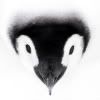Glad you like it!
Lin
On Fri, Nov 19, 2010 at 4:41 PM, Mark Smith <smithsurf@yahoo.co.uk> wrote:
From: Lin Kerns <linkerns@gmail.com>
Subject: [Geology2] Why a Pterosaur is Not a Dinosaur
To: "Geology2" <geology2@yahoogroups.com>
Date: Friday, 19 November, 2010, 17:36
Earlier this week paleontologists Mark Witton and Michael Habib published a new study in PLoS One on how pterosaurs—particularly large forms such as Quetzalcoatlus—took to the air. Rather than pushing off the ground with their legs, pterosaurs used their arms in a pole-vault type of motion to launch themselves skyward. Interesting stuff, but I quickly became irritated by some of the popular coverage of the new research.Whenever a story about pterosaurs makes it into mainstream news outlets, it is almost inevitable the flying archosaurs are going to be mistakenly called "dinosaurs" by at least one source. In this case the British newspaper the Telegraph and the venerable BBC were two of the main offenders, each declaring that pterosaurs were dinosaurs in their headlines.It might be easy to brush off my complaint as a case of paleo-pedantry, but word choice matters. "Dinosaur" is a word for a specific group of creatures united by shared characteristics and which had their own evolutionary history—it is not a catch-all term for anything reptilian and prehistoric. Calling a pterosaur a dinosaur is an error of the same order of magnitude as saying that our species is a marsupial, but to understand why we need to flesh out the evolutionary relationships of these animals.Let's start from the bottom and work our way up. The Archosauria is a diverse group of reptiles which contains two major subsections: crocodiles and their close relatives (collectively called crurotarsans or pseudosuchians) are on one side of the split, and dinosaurs, pterosaurs, and their closest relatives (called avemetatarsalians) on the other. For our purposes here, we're concerned with the second group.Looking at the Avemetatarsalia (see the diagram above), a major split is apparent at the base of this group. On the one side are the dinosaurs and their closest relatives, and on the other are pterosaurs and animals more closely related to them than dinosaurs. Both pterosaurs and dinosaurs are distinct groups that shared a common ancestor, and so to call a pterosaur a dinosaur is to ignore this major divergence in the evolution of both groups. A pterosaur is no more a dinosaur than a goldfish is a shark.There is no reason for news sources to keep applying the word "dinosaur" to pterosaurs. We have known about this distinction for a long time, and I bet that your average 10-year old paleo fan would know not confuse the groups. With even just a tiny bit of an evolutionary perspective, the distinction becomes clear.To learn more about pterosaurs, visit Pterosaur.net, which was recently created by a team of pterosaur experts including Witton and Habib.
Posted By: Brian Switek
Source
--
Got Penguins?
Penguin News Today
The Science of Penguins
The Gentoos are back! Come see them on live cam at:
Gentoo Penguins of Gars O'Higgins Station, Antarctica
--
Got Penguins?
Penguin News Today
The Science of Penguins
The Gentoos are back! Come see them on live cam at:
Gentoo Penguins of Gars O'Higgins Station, Antarctica
__._,_.___
Your email settings: Individual Email|Traditional
Change settings via the Web (Yahoo! ID required)
Change settings via email: Switch delivery to Daily Digest | Switch to Fully Featured
Visit Your Group | Yahoo! Groups Terms of Use | Unsubscribe
__,_._,___

No comments:
Post a Comment